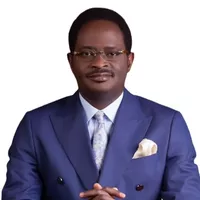- within Litigation and Mediation & Arbitration topic(s)
- in United Kingdom
- within Insurance, Compliance and Employment and HR topic(s)
INTRODUCTION
A lot has been said about the ex parte order granted by the Judicial Court of Paris on 14th August 2024 for the interim attachment of three aircrafts belonging to the Nigerian government. This development has generated several scholarly and enlightening discussions on the legal intricacies stemming from this action (especially as it relates to International Law), such as, how the 1 concept of attribution applies in international investment arbitration1 and a host of others.
What actually gave rise to the arbitral award that precipitated the grant of the ex-parte order in the irst place? What are the facts of the case? This is what this article seeks to explore. Before that, it would be prudent to irst take a peek at the China – Nigeria Bilateral Investment Treaty which is the fulcrum of the arbitral proceedings against Nigeria.
HOW DID WE GET HERE? THE CHINA – NIGERIA BILATERAL INVESTMENT TREATY
This agreement was entered between the two countries (Governments of the Peoples' Republic of China and the Federal Republic of Nigeria – Contracting Parties) for the Reciprocal Promotion and Protection of Investments in both States (hereinafter "BIT").
For the purpose of the agreement, Article 1 of the treaty set out the deinition of terms. In this regard, Article 1 (1) deined investment to mean every kind of asset invested by the investors of one contracting party in accordance with the laws of the other contracting party including but not limited to movable & immovable properties, shares, debentures, stock and any other kind of participation in companies, intellectual property rights etc. By Article 1 (2), investor was deined to include nationals and companies of both contracting parties.
The contracting parties also agreed among other things that, investments of investors in either contracting party are to enjoy continuous protection in the territory of the other contracting 2 party and subject to laws and regulations, neither contracting party2 is to take unreasonable or discriminatory measures against the management, maintenance, use, enjoyment and disposal 3 of the investment by the investors of the other Contracting Party3 . As to how these investments should be treated, the parties agreed among other things in Article 3 BIT that, the investment of investors of each contracting party shall all the time be accorded , national treatment, mostfavoured-nation treatment, and fair and equitable treatment in the territory of the other contracting party4.
The parties further agreed in Article 4 BIT that, neither contracting party is to expropriate, nationalize or take similar measures against the investments of the investors of the other contracting party in its territory, unless it is for public interest or under domestic legal procedure, and same is to be without discrimination and fair compensation paid where necessary. This compensation is to be the equivalent to the value of the expropriated investments immediately before the expropriation is proclaimed, be convertible and freely transferable. The compensation is to be paid without unreasonable delay and is to include interest at a normal commercial rate5.
Article 8 BIT makes provision for settlement of disputes between contracting parties, but of particular interest to the present discourse is Article 9 BIT which makes provision for settlement of disputes between investors and one contracting party. By Article 9 (1) BIT, any dispute between an investor of one of the Countries and the other contracting party in connection with an investment in the territory of the other contracting party shall as far as possible be settled amicably through negotiation between the parties to the dispute. Where the dispute could not be settled by negotiations within six months, either party to the dispute is then at liberty to submit the dispute to a competent court in the country of the con6 tracting party accepting the investment6. By Article 9 (3) of the BIT, if the dispute could not be settled through negotiation within six months, same can also be submitted at the request of either party to an ad hoc arbitral tribunal provided the dispute had not been submitted to court at that time.
These highlighted Articles in the BIT were the focal points of the arbitration proceedings between Zhongshan Fucheng Industrial Investment Co. Ltd v. Nigeria. We shall see how they relate as we now consider the facts.
THE CLAIMANT'S CASE7
The case of the claimant is that, in 2007, the Ogun State Government established the Ogun-Guangdong Free Trade Zone (the "Zone") as a free zone pursuant to the Nigeria Export Processing Zone Authority (NEPZA) Act and NEPZA Regulations. The Zone is a 10,000-hectare (100 km2) area of land in Ogun State. In 2010, the Zone was mana g ed and deve loped by OgunGuangdong Free Trade Zone Company (the "OGFTZ Company"). The OGFTZ Company was a joint venture between: (i) Guangdong Xinguang International China-Africa Investment Ltd. ("CAI"), which was a Chinese State owned company developing and managing the Zone; (ii) CCNC Group Limited ("CCNC"); and (iii) the Ogun State Government.
The Claimant's shareholder Zhuhai Zhongfu Industrial Group Co., Ltd ("Zhuhai Zhongfu") decided to invest in the Zone following which it entered into discussions with CAI responsible for managing the Zone. It was proposed that Zhuhai Zhongfu invest its own capital to develop the Zone with CAI. In this regard, Zhuhai Zhongfu would provide capital, arrange for the construction of infrastructure and attract tenants to the Zone and CAI would manage the coordination of administrative issues with Chinese and Nigerian government agencies. These discussions culminated in the execution of the Funcheng Industrial Park Agreement with OGFTZ under which the Claimant, which took over Zhuhai Zhongfu's rights and obligations under that agreement, was provided with the right to develop the Zone, starting with a model area in the heart of the Zone known as Fucheng Industrial Park and with priority rights to develop the remainder of the Zone. Under the agreement, the Claimant was also granted land use rights of the Funcheng Industrial Park for 97 years. These rights enabled the Claimant to transfer or lease its land use rights in the Park to tenants who would invest in and establish businesses in the Zone. Based on its rights under the Fucheng Industrial Park Agreement, the Claimant made signiicant investments in Nigeria and registered a subsidiary company, Zhongfu International Investment (NIG) FZE ("Zhongfu Nigeria") in Nigeria.
In March 2012, the Ogun State Government terminated the joint venture that it had previously entered into in June 2007 with CAI to manage the Zone - citing among other issues CAI's bankruptcy and its failure to develop the Zone. On the same day, Zhongfu Nigeria was requested by the Ogun State Government to take over the management of the Zone on an interim basis with expectations that Zhongfu Nigeria should be "attracting suficient businesses to the Zone to boost economic activities". Because the Claimant already invested signiicant sums into the Zone under the Fucheng Industrial Park Agreement and faced with the possibility of losing this investment if the Zone is shut down, the Claimant and Zhongfu Nigeria agreed to act as the interim manager of the Zone. On 10 April 2012, NEPZA sent a letter to CAI conirming the termination of CAI as the manager and operator of the Zone by the Ogun State Government. NEPZA directed CAI to hand over immediately all assets and documentation which belonged to OGFTZ Company to Zhongfu Nigeria, as the newly appointed manager of the Zone. On 11 April 2012, NEPZA sent a letter to Zhongfu Nigeria conirming its appointment as the manager and operator of the Zone. Upon assuming this role, the Claimant made further investments to develop the Zone including construction of roads, establishment of a power plant, electrical cables, water supply, sewage etc. The Claimant also attracted large number of international investors within this time to establish factories and businesses in the Zone.
After 18 months, the Ogun State government pleased with the successful management of the Zone decided to make the interim management long-term. The Ogun State government and Zenith Global Merchant Limited ("Zenith") in this regard entered into a Joint Venture Agreement (JVA) with Zhongfu Nigeria which gave Zhongfu Nigeria additional rights to the development, management and operation of the Zone for over 90 years and the majority shareholding interest on OGFTZ Company. On the strength of the JVA, the Claimant continued investments in the Zone and attracted major businesses as tenants. The Managing Director of Zenith became the chief coordinator of the Zone for Ogun State Government. In 2014, a Chinese company New South Group ("NSG") alleged that it had acquired CAI's terminated rights in the Zone and that this gave NSG the right to manage the Zone. This claim was rejected by the Ogun State government in 2014 and Zhongfu Nigeria received assurances at that time from the government about its standing and rights in the Zone which precipitated further investments.
In 2016, the Ogun State government purportedly terminated the agreement and appointed NSG to take over the management of the Zone. Thereafter, Nigeria through the actions of the Ogun State Government, NEPZA and the Nigerian Police took over the entirety of the rights and assets in the Zone and forcibly evicted Zhongfu Nigeria from the Zone. It was the Claimant's case that it repeatedly informed the Nigerian authorities of its rights in the Zone even through its Nigerian lawyers, but same was rebuffed. The CEO of Zhongfu Nigeria was threatened by the Secretary to the Ogun State Government and the Chief Finance Oficer was arrested, detained and subjected to inhumane treatment by the Police for a week. Fearing for their safety, Zhongfu Nigeria's management team were forced to leave Nigeria. The Claimant thus had the entirety of its investment taken from it through the actions of the Respondent without compensation. This is a classical case of unlawful expropriation of Zhongfu investment. Despite the initial assurances given by the Ogun State Government, the termination and subsequent measures taken by the government completely obliterated the legitimate expectation of the Claimant.
Following the takeover of the Zone by NSG with the assistance of NEPZA and the Nigerian Police at the direction of the Ogun State Government, the Claimant's subsidiary, Zhongfu Nigeria initiated protective proceedings before the Nigerian courts (the Federal High Court and the Ogun State High Court) which had no effect on the Ogun State government as it continued with its actions. On 1st December 2016, Zhongfu Nigeria initiated a commercial arbitration administered by the Singapore International Arbitration Center (SIAC) against the Ogun State Government concerning breaches of the JVA. Zenith made an application to the Ogun State High Court for an anti-arbitration injunction arguing that Zhongfu Nigeria had waived its arbitration right under the JVA by instituting and taking steps in the NEPZA proceedings. The Ogun State High Court granted Zenith's prayers and issued a forever injunction restraining Zhongfu Nigeria from continuing or participating in the Singapore Arbitration Proceedings. This decision was appealed against. Zhonfu Nigeria however took steps to discontinue the respective Nigerian litigation proceedings "having lost any conidence given developments in the Nigerian Courts and the actions of Nigeria more generally of obtaining justice in Nigeria".
This treatment they argued breached Nigeria's international obligations to the Claimant under the China-Nigeria BIT. The Claimant thus commenced arbitration pursuant to Article 9 of the BIT. In particular, it is the Claimant's case that measures taken by the Ogun State government, NEPZA and the Police contravened Nigeria's obligation to provide fair and equitable treatment under the BIT as well as not to take unreasonable measures and accord the Claimant's investment continuous protection. The Claimant thus sought full reparation for the losses resulting in the violation of the treaty and international law in the form of monetary compensation.
NIGERIA'S RESPONSE TO THE CLAIM
The Respondent's contention was among other things the Claimant's complaints are not about the conduct of the Federal State of Nigeria, and therefore, there is no claim against Nigeria. It was also argued that the Claimant had no claim because it did not hold an "investment" within the meaning of Article 1 (1) of the BIT. Nigeria also argued that, the fork-in-the-road provision in Article 9 (3) of the BIT operates to preclude the Claimant from bringing the dispute before the Tribunal because of litigations by different parties before the Nigerian Courts and that the Claimant's claim should not be adjudicated in the absence of the People's Republic of China government being involved in the arbitration.
Nigeria also contended that Ogun State was wrongfully induced by Zhongfu to enter into the 2013 JVA and that accordingly, no claim could be brought against it based on the loss of Zhongfu's right thereunder. The misrepresentation was said to be that, in order to achieve its target of securing appointment as substantive manager of the Zone, Zhongfu misrepresented to Ogun State that CAI and its parent company had been liquidated and wound up without successor companies. It was claimed that this misrepresentation led Ogun State to decide to write the November 2011 letter and the March 2012 letters and then to enter into the 2013 JVA.
WHAT WAS THE DECISION OF THE TRIBUNAL? - THE FINAL AWARD8
The Tribunal rejected the argument that the Claimant had no valid claim against Nigeria because the actions complained of were carried out by the Federal State. The Tribunal held that, for the purposes of a claim such as the matter before it, all organs of the State, including those which have an independent existence in domestic law, are treated as part of the State. This is customary international law which is clear in light of the Articles on Responsibility of States for Internationally Wrongful Acts (ARSIWA) adopted by the International Law Commission in August 2001. Whilst acknowledging that Nigeria relied on certain cases where breach of contract by local authorities was said not to be attributed to the state concerned, the Tribunal held that it was implicit in the reasoning in those cases that, if the actions complained of would otherwise amount to a breach of the treaty in issue, then it would be attributed to the State. As such, if and in so far as the 2016 activities of the Ogun State government would otherwise amount to a breach of the Treaty, they can and should be attributed to Nigeria.
The Tribunal also rejected the argument made by Nigeria that the Claimant did not hold an investment in Nigeria. The fork-inthe-road argument that Nigeria made on the ground that the Claimant opted for court proceedings was also refused by the Tribunal. On this issue, the Tribunal acknowledged that there are a large number of tribunal decisions where such fork-in-theroad point had been considered but it resolved that the correct approach on this issue is that adopted by the tribunal in Khan v. Mongolia decision. In that decision, the tribunal identiied the two familiar tests, "the triple identity test" (which requires the domestic court proceedings to involve the same parties, the same cause and the same object as the treaty arbitration) and "the fundamental basis test" (which involves asking whether the basis of the domestic court proceedings was fundamentally the same as the basis for the treaty arbitration). In applying that approach to the arbitration, the Tribunal found that neither of the parties to the arbitration (the Claimant and Nigeria) were party to either of the Court proceedings. It was noted that Article 9(3) of BIT refers to the "investor concerned" which is a reference back to the deinition in Article 1(2), so that, in the present context, it refers to the Chinese investor, the Claimant, not the Nigerian subsidiary (Zhongfu) and the investor concerned did not commence any proceedings in the Nigerian courts. Also, in the Court proceedings, the case of the Plaintiff was based on alleged breaches of its contractual and possessory rights whereas the Claimant's case in the arbitration is based squarely on the Treaty. It was also found that the reliefs sought are also different. In the court proceedings, Zhongfu sought declaratory and injunctive relief while the Claimant in the arbitration sought compensation. On the issue of misrepresentation, the Tribunal held among other things that there is nothing in the witness statement of Nigeria's witness to support the contention that the alleged misrepresentation was made.
Having rejected Nigeria's jurisdictional and preliminary points and its argument based on misrepresentation and concealment of material facts, the Tribunal found in favour of the Claimant. It held that, so far as the facts are concerned, the Tribunal could not see any good reason for not accepting as accurate both the documentary evidence, and the oral testimony, adduced by the Claimant. The Tribunal concluded that the written and oral communications and the actions taken by Ogun State, NEPZA and the Police between April and August 2016 infringed Nigeria's obligations under Articles 2(2), 2(3), 3(1) and 4 of the BIT. The Tribunal accordingly awarded the Claimant USD 55.6 million by way of compensation. In addition, the Tribunal granted the Claimant moral damages in the sum of USD 75,000 representing each day the Claimant's representative was mistreated and to relect the other inappropriate behaviour of representatives of Nigeria towards the employee and a director of Zhongfu.
WHAT HAPPENED AFTERWARDS?
Nigeria applied before the High Court of Justice (Business and Property Courts of England and Wales) seeking to set aside the award of the arbitral tribunal, contending that the Tribunal lacked jurisdiction. It contended for the irst time that the arbitration agreement in the BIT was invalid. It also contended the other arguments it made before the Tribunal. Zhongshan Fucheng Industrial Investment Co. Ltd. (as defendant in that action – hereinafter "Zhongshan") responded to the challenge and iled an application for security for cost and security for award. Days before that application was due to be heard, Nigeria by a notice of discontinuance dated 8th October 2021 discontinued all of its claims. Zhongshan thereafter iled an application seeking to enforce the award as a judgment. According to the procedure laid down in the Civil Procedure Rules, that application was made without notice to Nigeria. The Judge granted the exparte order in accordance to the usual practice. Since the enforcement order was made without notice to Nigeria, the Judge further held that Nigeria has the right to apply to set aside or vary the order, if so advised, within two months and 14 days of the date on which the order is served on Nigeria.
Nigeria was served with the enforcement order on 30th May 2022. The deadline for applying to set aside or vary the order expired on 16th August 2022. On 15th September 2022, Nigeria iled an application seeking among other things for extension of 28 days within which to apply to set aside or vary the order. This application was opposed on the ground that Nigeria's failure to comply with the deadline was signiicant and it had not identiied any proper reason for its failure. Nigeria also missed the deadline period for evidence in response and on 29th November 2022, iled another application for extension of time in respect of the missed deadline. The Judge entertained the two applications and dismissed them. Nigeria appealed against this decision to the Court of Appeal in England. The appeal was again dismissed. It was held among other things that Nigeria failed to comply with the generous time limit of two months and fourteen days to make an application to vary or set aside the order and did not raise state immunity until 29th November, three months after the time limit expired.9
Zhongshan also took out a Petition on 25th January 2022 in the United States District Court for the District of Columbia to recognise and enforce foreign arbitral award. The action was initiated pursuant to the Federal Arbitration Act of the US which provides for conirmation of arbitral awards falling under the Convention on the Recognition and Enforcement of Foreign Arbitral Awards of June 10, 1958 (the "New York Convention"). In response, Nigeria iled a motion to dismiss for lack of subject-matter and personal jurisdiction under the Foreign Sovereign Immunities Act (FSIA), contending that no exception to the FSIA applies because the award does not fall under the New York Convention. The Court found that the matter falls under the New York convention and Nigeria was not immune under the FSIA. Nigeria timely appealed the district court's denial of its motion to dismiss. The US Court of Appeals for the District of Columbia Circuit agreed with the district court that the FSIA's arbitration exception stripped Nigeria of its sovereign immunity in this case. The Court held that the Final Award is enforceable under the New York Convention because it arose out of differences between "persons" that share a legal, commercial relationship. The district court therefore has jurisdiction over this case under the FSIA's arbitration exception.10
Also, Zhongshan obtained ex-parte orders from the Judicial Court of Paris for the interim attachment of three aircrafts which the Nigerian Government said were "undergoing routine maintenance in France".
CONCLUSION
The furore surrounding the seizure of some aircrafts belonging to the government of Nigeria pursuant to an ex-parte order of a French Court did not start one day. It was a culmination of a series of events starting in 2007. We have by this Article shed light on these events and how we got to where we th were on 14 August 2024.
Now that we have a proper grasp of what transpired between the parties, we shall in our subsequent publication consider and or lay bare various legal issues associated with international arbitration disputes. This will provide in-depth knowledge on these issues, especially in light of the dispute between Zhongshan Fucheng Industrial Investment Co. Ltd v. The Federal Republic of Nigeria.
Footnotes
1 Zhongshan Fucheng Industrial Investment Co. Ltd v. Nigeria: How the concept of attribution applies in international investment arbitration. Available at https://www.linkedin.com/posts/tope-adebayo-lp_zhongshan-fucheng-industrial-investment-company-activity-7233806431886471168- xmb3?utm_source=share&utm_medium=member_desktop accessed on 27th August 2024
2 Article 2 (2) BIT
3 Article 2 (3) BIT
4 Article 3 (1) BIT
5 Article 4 (2) BIT
6 Article 9 (2) BIT
7 Available at https://www.italaw.com/sites/default/iles/case-documents/italaw181724.pdf. Accessed on 20th August 2024
8 Availabe at https://www.italaw.com/sites/default/iles/case-documents/italaw170108.pdf. Accessed on 21st August 2024
9 Available at https://www.italaw.com/sites/default/iles/case-documents/180230.pdf.Accessed on 26th August 2024
To view original Tope Adebayo article, please click here
The content of this article is intended to provide a general guide to the subject matter. Specialist advice should be sought about your specific circumstances.








